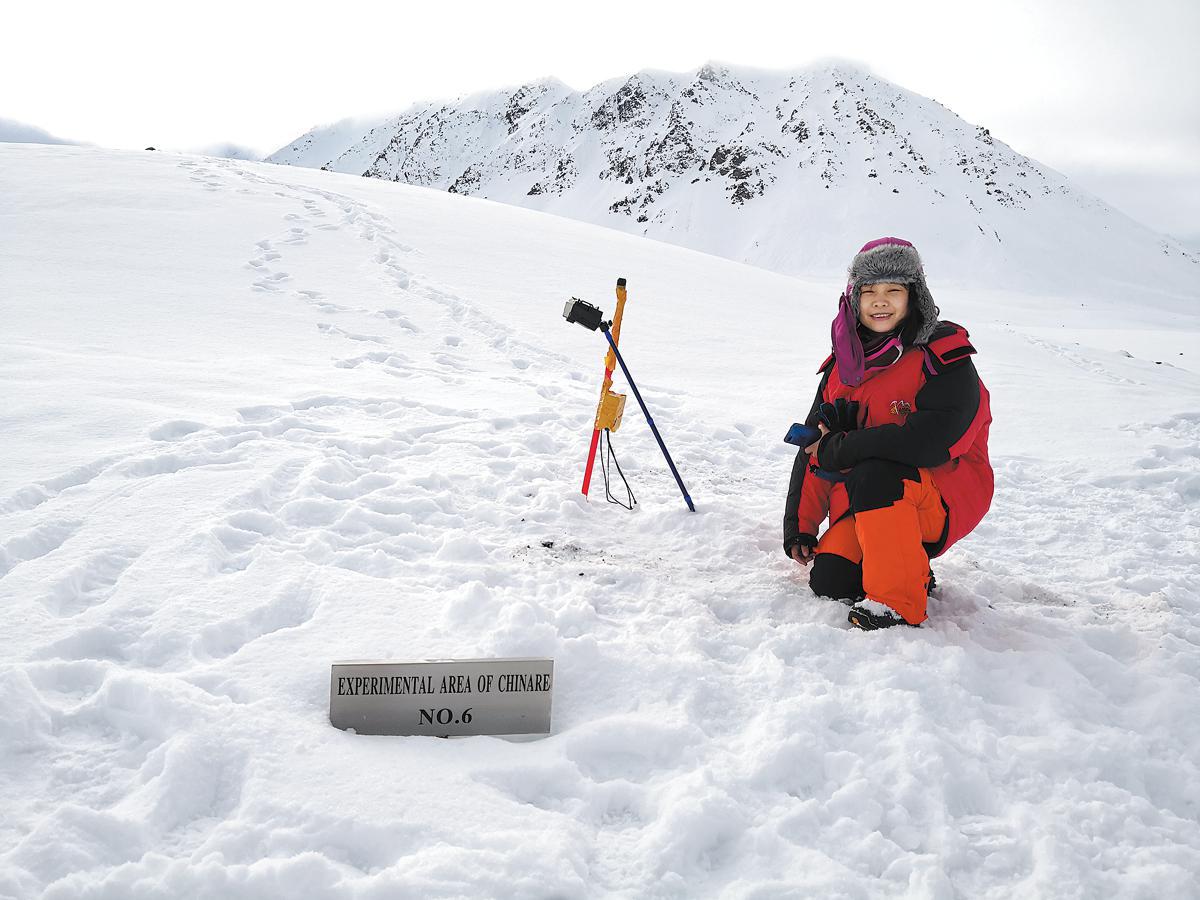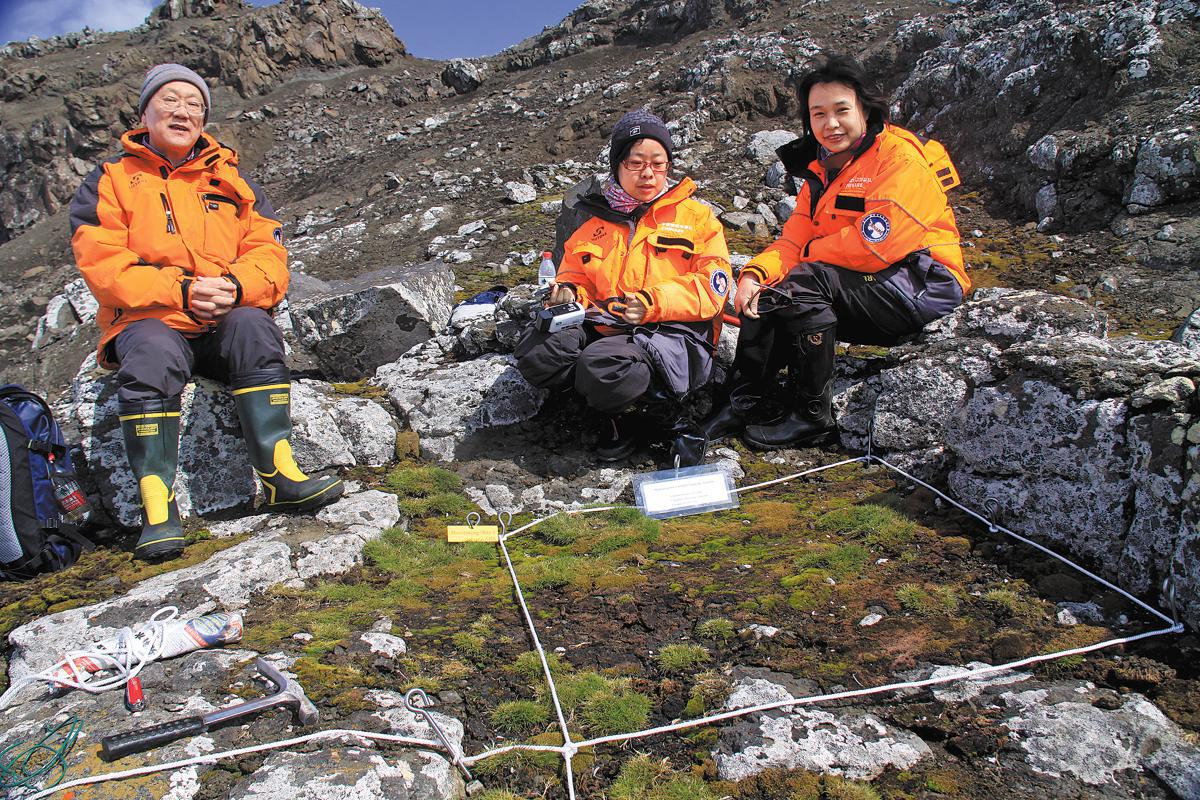
Peng Fang sets up an experimental site near Great Wall Station in Antarctica. [Photo provided to CHINA DAILY]
Over the past 15 years, Chinese scientist Peng Fang has gone on scientific expeditions at the North and South poles 13 times. Though she is not a fan of outdoor activities, she said the charm of the polar regions is irresistible, compelling her to return again and again.
In Antarctica, Peng's primary task is to search for and collect new species of microorganisms in order to study their survival strategies and evolutionary patterns in extreme environments. Research on the characteristics of those microorganisms, including their tolerance of cold, drought, radiation, polar days and inadequate nutrition, could be beneficial to human society in the future, the scientist said.
"Studying how these microorganisms adapt to the North and South poles allows me to learn the wonders of life," she said. "These tiny bacteria have so many strategies, which I find very intriguing. Interest is crucial for learning and research, and polar expeditions help me maintain a long-term interest in my field."
As time has passed, Peng has discovered numerous new microorganisms, and Wuhan University's microbiology research team, which Peng is a part of, is responsible for the most polar bacteria species discoveries in the world.
Her frequent journeys with the team have enabled Peng to really get to know her fellow researchers.
"Instead of direct interactions, people back home would communicate more through computers and phones. However, in the polar regions, especially on polar research vessels where there is no internet, everyone lives together in cramped cabins for several months or even half a year, leading to a lot of conversations," Peng said.
She jokingly added, "By the time we disembark, we all know each other's ancestors up to the eighth generation."

Peng Fang (right) and fellow scientists set up a monitoring site on King George Island in Antarctica. [Photo provided to CHINA DAILY]
That being said, close interpersonal relationships are a necessity when team members perform outdoor tasks.
"Missions in the wilderness require team members to have a high level of trust in each other and to cooperate well, because humans are truly insignificant in the face of nature," she said. "You need to trust your teammates completely to ensure your work is done safely and smoothly."
Working well together is critical, and both male and female team members play key roles, she explained.
"In polar scientific expeditions, men and women working together can make the work a lot smoother," Peng said. "When heading out for tasks, men may be more careless, forgetting to apply sunscreen or take a head covering. Women would remind them and are usually more meticulous in tasks such as map reading, site design, food and water preparation, anticipating phenomena on the way and preparing backup supplies.
"Men, on the other hand, may take the initiative to carry some shared equipment, which helps in the overall progress of the team's scientific work."
Professor Zhou Chunxia, a member of Wuhan University's polar expedition team, acknowledged that in general, the women on the team are not as physically strong as the men.
Peng agreed.
"Although my physical strength may not be enough to help carry things for others, I must at least carry my own samples and equipment and keep up with the team's pace," Peng said.
She further explained that in polar scientific expeditions, where time is scarce and weather is erratic, each team member must fulfill their duties promptly. Delays not only hinder individual tasks but can also impede the progress of other team members.
"I support gender equality, which doesn't entail women needing special assistance from men or being singled out for discussion. Instead, everyone should bear their own responsibilities, regardless of gender roles."
lipeixuan@chinadaily.com.cn